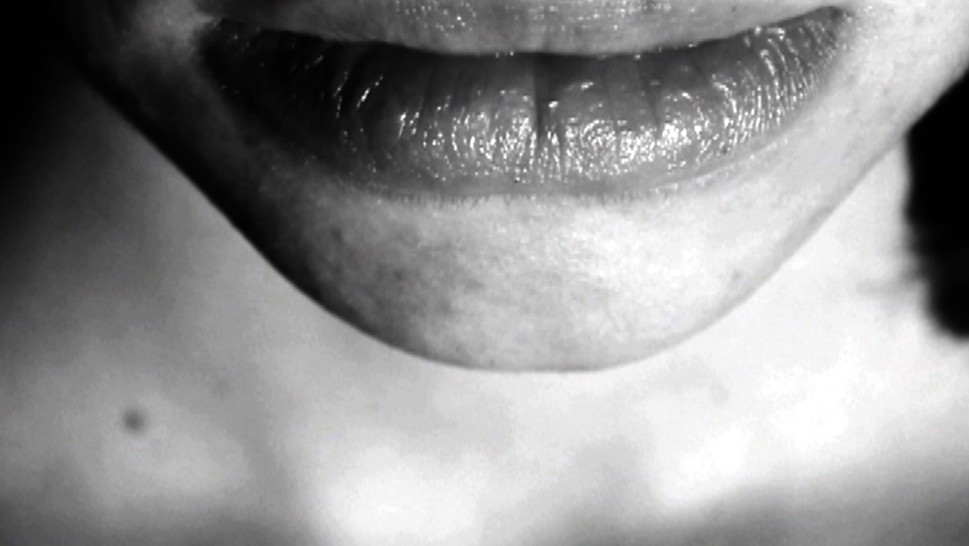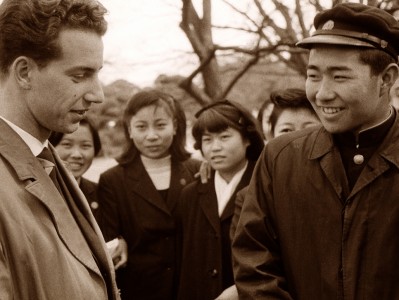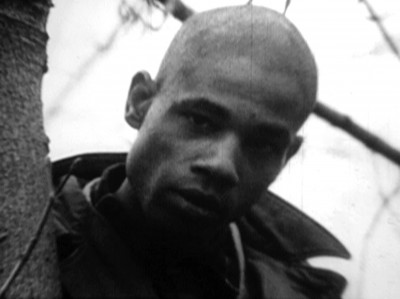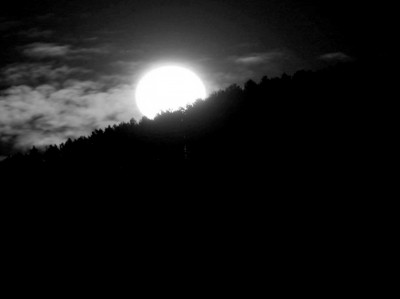
An Evening with Sylvia Schedelbauer
$15 Special Event Tickets
My practice encompasses essay filmmaking, structuralist cinema, and metaphorical narratives, with a deep investment in the sensory agency of image and sound. Questions around transnational identity have been important to my work since my first two film essays. In recent films, I steered away from working on these questions openly, but they have nonetheless continued to inform my work, albeit less obviously. The concept of simultaneity is at the core of everything I do. Not only the expression of feelings of in-betweenness, but also the straddling, bridging, mixing, and merging of perceived opposites—these are longstanding challenges all of my work seeks to address. One could say that working between celluloid film and digital video, in order to create a hybrid aesthetic, has opened up various productive possibilities. Another useful strategy has been the collapse of time and space. Experimenting with ideas around simultaneity has also extended my exploration of seemingly incompatible elements. Finally, in recent films, I have employed the flicker technique, producing through editing an effect that affords the illusion of simultaneities: at once both fast and slow, light and dark, both internal and external, showing at once human and landscape, the here and there, then and now. Moreover, the effects work with the psychological: conscious and unconscious, liminal and subliminal, push and pull. In other words, through technique and form I can delve into some common aspects of a transnational identity that absorbs polar opposites and bridges imposed binaries. All of my work has had conceptual ideas and theory as a basis and point of departure. These function as catalysts for films that I cannot know how they will unfold. My filmmaking method relies on a dialectic process, I go between editing image, then sound, then back to image, back and forth. It is very process based and relies heavily on my editing work. – Sylvia Schedelbauer
The films of Sylvia Schedelbauer (b. 1973) invent poetic forms to explore and intertwine different modes of perception and memory. Using archival found-footage, Schedelbauer reanimates anonymous images to cast a searching, melancholy gaze upon the traces of hidden, half known, or forgotten pasts. In key films, Schedelbauer works with stroboscopic rhythms and musical structures to create abstract, subliminal narratives that pull the viewer deep into intimate and enthralling imagescapes. Her experimental filmmaking is partially guided by a self-reflective reflection upon her own identity as a transnational and independent artist that began with her earliest film, Memories, inspired by her discovery of a box of photographs left by her father chronicling his youth in Nazi Germany and his years in Japan, where he met her mother and where Schedelbauer was born and raised. A revelation of the strange distance that can loom suddenly between even those closest to us, Memories is a poignant meditation on how so much of adult identity is based upon selective memory, be it conscious or unconscious. In subsequent films, Schedelbauer has embraced different ways of exploring subjective visions, from her lyrically elusive masterwork Remote Intimacy—a trance narrative about travel and unspoken trauma—to the quiet intensity of Sea of Vapors and Sounding Glass, using flicker structures to reach towards the sublime. Schedelbauer’s latest film is a work-in-progress that marries the techniques of her previous flicker films and films with voiceover to create a lushly symphonic and immersive personal dream cosmos. – Haden Guest
Sylvia Schedelbauer visits the Harvard Film Archive as a 2019-20 Radcliffe/Film Study Center Fellow, with her screening offered as her official Radcliffe presentation.
Remote Intimacy is a found-footage montage that combines many types of archival documentary footage (including home movies, educational films, and newsreels) with a pseudo-personal narrative, blending various individual recollections with literary texts. Beginning with an account of a recurring dream, the film is a poetic amplification of Memory, and with its associative narrative structure I hope to open up a space for reflection on issues of cultural dislocation. – SS
A woman grows up during the bubble economy in Japan. Why did her parents never speak about the past? Using a box full of photos found in her family archive, the filmmaker tries to construct one version of a family history. – SS
A man in a forest is subject to a flood of impressions; rhythmic waves of images and sounds give form to his introspection. – SS
Sea of Vapors celebrates a feminine sensibility within a cinematic space, in the here and now. The images, cut frame by frame, are interwoven and flow into one another to evoke what seems like a private ritual that a woman performs.
Many of my works deal with history, memory and cultural identity, but for Sea of Vapors I wanted to make something that was largely stripped of these denominators. In a way this film is also about a heightened awareness of the present moment, at once showing intro- and extro-spective views, and a sense of self-awareness and becoming. – SS
-
Labor of Love (work-in-progress)
Directed by Sylvia Schedelbauer.
Germany/US, 2020, digital video, color, 11 min.












